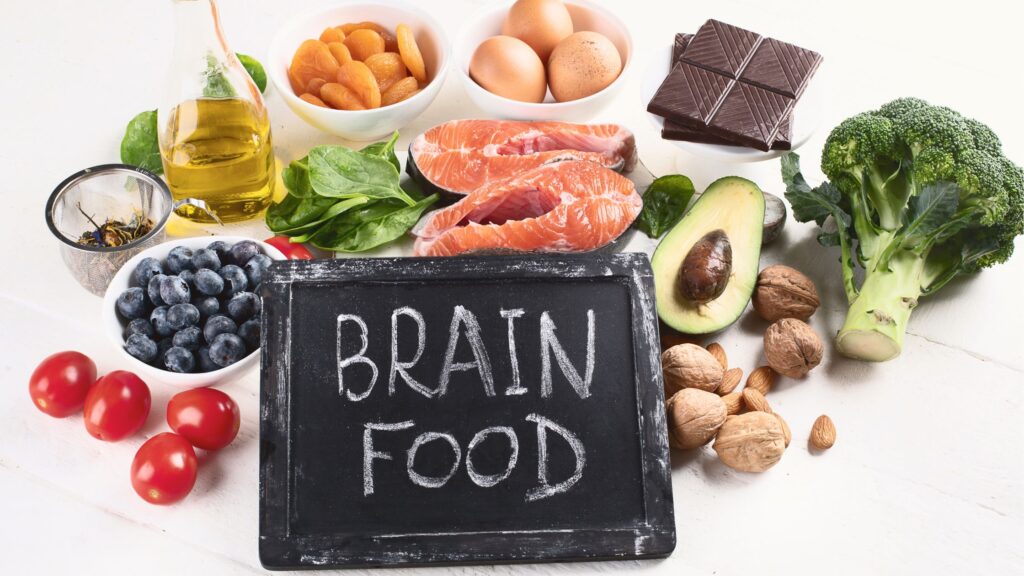We often think of anxiety, depression, or brain fog as purely emotional or psychological challenges. But emerging research in nutritional psychiatry shows that what you eat can have a profound effect on how you feel—mentally and emotionally.
Your brain is an organ that relies on constant nutrient input, stable blood sugar, and a healthy gut microbiome to function at its best. Inflammation, nutrient deficiencies, and poor diet can all affect neurotransmitter levels and cognitive function, contributing to mood disorders and mental fatigue.
In functional medicine, we look at the brain-gut-nutrient connection to support mental wellness from the inside out.
The Gut-Brain-Mood Connection
Your gut and brain are deeply interconnected via the vagus nerve, immune system, and your microbiome. In fact, about 90% of your serotonin (your “feel-good” neurotransmitter) is made in the gut.
Disruptions in gut health—like dysbiosis, inflammation, or leaky gut—can trigger:
Anxiety and low mood
Brain fog and fatigue
Sleep disturbances
Poor stress tolerance
That’s why gut health and nutritional status should be key considerations in supporting mental well-being.
Key Nutrients That Support Mental Health
1. Omega-3 Fatty Acids (EPA & DHA)
Anti-inflammatory and crucial for brain cell membrane health
Support serotonin and dopamine signalling
Low levels are associated with depression and cognitive decline
Sources: Wild salmon, sardines, anchovies, flaxseeds, walnuts (though plant forms are less bioavailable)
2. Magnesium
Calming mineral that supports GABA (your brain’s “brake” neurotransmitter)
Low magnesium is common in stress and anxiety
Sources: Pumpkin seeds, spinach, almonds, black beans, dark chocolate
3. B Vitamins (especially B6, B9, B12)
Essential for neurotransmitter synthesis (e.g. serotonin, dopamine, GABA)
Support methylation and homocysteine balance
Deficiencies linked to mood disorders and fatigue
Sources: Grass-fed meats, eggs, leafy greens, legumes, nutritional yeast
4. Zinc
Anti-inflammatory and involved in over 300 enzymatic processes
Plays a role in mood, cognition, and stress regulation
Sources: Oysters, beef, pumpkin seeds, chickpeas
5. Iron
Needed for oxygen delivery to the brain and dopamine production
Deficiency can cause fatigue, apathy, and low mood
Sources: Grass-fed red meat, lentils, spinach, dried apricots
6. Amino Acids (Protein)
Your body makes neurotransmitters from amino acids (e.g. tryptophan → serotonin)
Inadequate protein intake can impair brain chemistry
Sources: Eggs, poultry, fish, legumes, quinoa, seeds
Mood-Boosting Foods to Prioritise
Leafy greens (spinach, rocket, kale) – rich in folate and magnesium
Berries – antioxidants protect the brain from oxidative stress
Fermented foods (sauerkraut, kimchi, kefir) – support gut-brain signalling
Avocados and olive oil – healthy fats for brain function
Complex carbohydrates – stabilise mood through steady energy (sweet potatoes, quinoa, lentils)
Foods to Reduce or Avoid
Refined sugars – blood sugar swings worsen anxiety and irritability
Ultra-processed foods – linked to increased risk of depression
Alcohol – depletes B vitamins and disrupts sleep and neurotransmitters
Artificial sweeteners – may disrupt the gut-brain axis and mood in sensitive individuals
Functional Strategies for Mental Well-being
Eat protein at every meal to stabilise energy and provide neurotransmitter building blocks
Support gut health with prebiotics, probiotics, and fibre
Balance blood sugar (no skipping meals, reduce refined carbs)
Ensure adequate hydration and healthy sleep habits
Consider adaptogens (like ashwagandha or rhodiola) and calming herbs if stress is high
Functional Testing to Consider
Nutrient status (e.g. B12, iron, zinc, magnesium, vitamin D)
Organic Acids Test (neurotransmitter and mitochondrial markers)
Stool test for gut inflammation, dysbiosis, or leaky gut
Homocysteine (linked to methylation and mood)
Final Thoughts
Your brain and body are deeply connected—and food is one of the most powerful tools you have to influence both. Nutritional psychiatry reminds us that what we eat impacts how we feel, not just physically but emotionally, cognitively, and spiritually.

